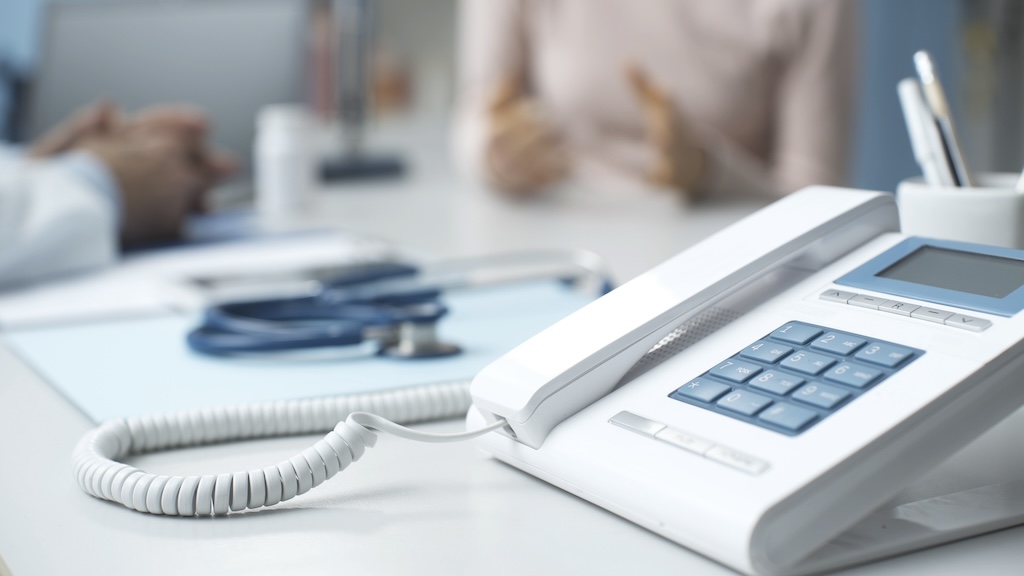Medical receptionists are typically the first people you speak to when you visit a doctor’s office, hospital, or clinic. These professionals go by many names – including medical secretaries, medical administrative assistants, and medical office assistants – but no matter what you call them, they’re an important part of nearly every healthcare team.
How to Become a Medical Receptionist
Before we get to the specifics of being a medical receptionist, let’s review the steps it takes to become one. The requirements differ from state to state, but you’ll generally need to complete all or most of the following steps:
- Education: A high school diploma or GED is typically required to become a medical receptionist.
- Training: While not always a requirement, you’ll be more prepared to start working as a medical receptionist if you complete a training program in medical administration.
- Certification: Depending on your potential responsibilities, employers might prefer that you pass a certification exam, like the one offered by the National Healthcareers Association (NHA), to prove you have all the skills needed for the job.
Most Common Medical Receptionist Duties & Responsibilities
Although specific responsibilities will differ depending on your employer, most medical receptionists are tasked with at least some of the following duties.
Administrative Medical Receptionist Duties
As you might guess, most of a medical receptionist’s most important responsibilities fall under the administrative umbrella, including:
- Answering phone calls: Like any receptionist, medical receptionists are expected to pick up the phone and direct callers to the right person.
- Greeting patients: Medical receptionists are usually the first point of contact for patients, serving as the friendly face of the clinic.
- Handling complaints: When patients encounter problems, medical receptionists are responsible for hearing them out and doing whatever they can to get their concerns addressed.
- Managing billing: Making sure patients’ bills are settled is one of the most important responsibilities entrusted to medical receptionists.
- Scheduling appointments: Medical receptionists make sure both patients and providers are made aware of their upcoming appointments, and help reschedule them when needed.
- Stocking supplies: Keeping the office stocked with both office and medical supplies is an undersung but crucial duty often handled by medical receptionists.
Less Common Medical Receptionist Duties
Employers might expect you to get certified as a Medical Administrative Assistant before entrusting you with some of these advanced responsibilities:
- Communicating with insurers: Managing processes like pre-authorization with patients’ insurers is essential to ensuring uninterrupted care.
- Coordinating care: When patients need care your institution can’t provide, medical receptionists may be asked to prepare referrals to more appropriate clinics.
- Maintaining patient records: Some medical receptionists are tasked with keeping patients’ electronic health records accurate and up-to-date.
- Managing provider schedules: On top of scheduling patients’ appointments, some medical receptionists also help manage providers’ time outside of patient-clinician interactions.
How to Know If You’d Make a Good Medical Receptionist
You may have noticed a few common themes while you were reading those responsibilities, because many of them make use of the same underlying skills.
If you’re good at or enjoy these kinds of activities, you’ll probably make a good medical receptionist or other healthcare admin professional:
- Helping people: Many of a medical receptionist’s most important duties require you to be a patient, helpful guide to potentially confused or upset callers, patients, and guests.
- Keeping track of things: Like many administrative workers, medical receptionists need to be able to keep supplies, people, and records organized even in chaotic conditions.
- Taking difficult feedback: Medical receptionists are often the people tasked with hearing out patient complaints and addressing them compassionately without becoming emotional themselves.
Learn More About a Medical Receptionist Career
- Medical Receptionists: Responsibilities, How to Become One, Salary, & More
- What’s the Difference Between Medical Administrative Assistants, Medical Receptionists, and Medical Office Assistants?
- Medical Administrative Assistant Certification Requirements by State




.svg)












